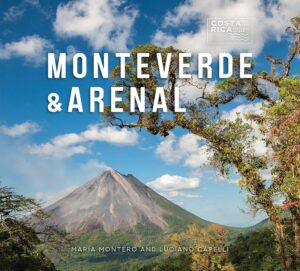In 1951, a remarkable chapter in Costa Rican history began when a group of American Quakers made an extraordinary decision that would transform a remote mountain region and influence the country’s coffee industry forever.
A history of Quaker Coffee Farms at Monteverde
The story starts during the Korean War, when a group of Quakers from Fairhope, Alabama became increasingly troubled by America’s military activities and the requirement to register for the draft. As conscientious objectors whose religious beliefs centered on peace and nonviolence, they found themselves at odds with their country’s military obligations.
Led by Hubert Mendenhall, around 44 Quakers decided to leave everything behind and search for a country that aligned with their peaceful values. They chose Costa Rica for a profound reason: in 1948, President José Figueres had abolished the military, making Costa Rica one of the few countries in the world without an army. This bold stance on peace resonated deeply with the Quaker community.
Finding Monteverde
After arriving in Costa Rica, the group purchased about 3,400 acres of land in what would become known as Monteverde (Green Mountain). The area was remote, pristine, and challenging to access – exactly what they were looking for. They paid roughly $50 per acre for land that no one else wanted due to its isolation and difficult terrain.
The early years were extraordinarily challenging. The Quakers had to build everything from scratch: homes, roads, a water system, and a school. They cleared land by hand and used oxen to haul materials up the mountain. The difficult access meant they had to be almost entirely self-sufficient.
The Birth of Monteverde Coffee
While the Quakers initially focused on dairy farming (establishing the now-famous Monteverde Cheese Factory), they quickly recognized that the region’s unique climate and soil conditions were perfect for coffee cultivation. The constant cloud forest cover, high altitude, and rich volcanic soil created ideal growing conditions for high-quality Arabica coffee.
They began planting coffee using sustainable methods that were ahead of their time:
- They preserved forest canopy for shade-grown coffee
- They implemented soil conservation techniques
- They developed natural processing methods that conserved water
Quakers and Land Conservation
Perhaps the Quakers’ most lasting legacy wasn’t just in coffee production, but in their approach to land stewardship. They set aside a third of their land as a watershed preserve, which would later become the core of the famous Monteverde Cloud Forest Reserve.
Their conservation ethic influenced how coffee was grown in the region:
- They rejected the common practice of clear-cutting forest for coffee plantations
- They developed methods to grow coffee in harmony with the existing ecosystem
- They emphasized quality over quantity in production
The Coffee Cooperative

In 1989, the community established the Monteverde Coffee Cooperative (COMAG), which brought together Quaker and Costa Rican farmers. This cooperative embodied the Quaker principles of:
- Community cooperation
- Fair compensation for workers
- Environmental stewardship
- Sustainable farming practices
PureCoffeeCraft is a participant in the Amazon Services LLC Associate Program, an affiliate advertising program designed to provide a means for sites to earn advertising fees by advertising and linking to Amazon. There is no extra cost to consumers for clicking on the following links.

Modern Legacy
Today, the original Quaker families’ influence can still be seen throughout Monteverde:
- Their sustainable farming practices have become industry standards
- The Monteverde Cloud Forest Reserve they helped establish draws visitors from around the world (see a puzzle of this area by clicking here)
- Their coffee cooperative continues to produce renowned coffee
- The community they founded remains a model of environmental consciousness
The “Quaker’s Blend” coffee produced today pays homage to these pioneers, using beans grown on some of the original family farms and processing them according to traditional methods they established.

Impact on Costa Rican Coffee Industry
The Quakers’ influence extended beyond Monteverde, affecting Costa Rica’s broader coffee industry by:

- Introducing new quality control standards
- Demonstrating successful sustainable farming practices
- Establishing direct trade relationships with international buyers
- Proving that environmental conservation and profitable farming could coexist
Their story represents a unique intersection of religious conviction, environmental consciousness, and agricultural innovation, showing how a small group of idealistic settlers helped shape both a region and an industry.

Today, visitors to Monteverde can still experience this legacy through coffee tours, visits to the original Quaker meeting house, and of course, by enjoying a cup of coffee grown in the cloud forest using methods established by those first peaceful pioneers.
